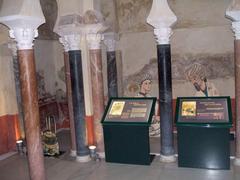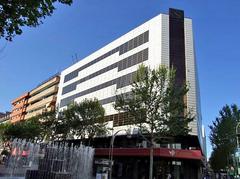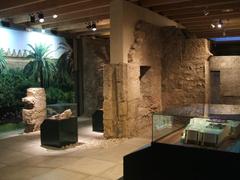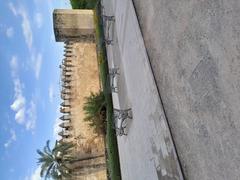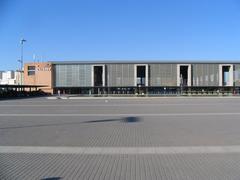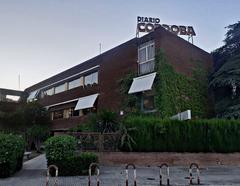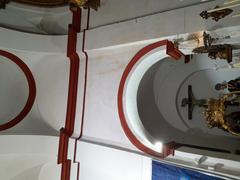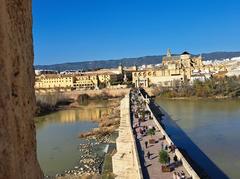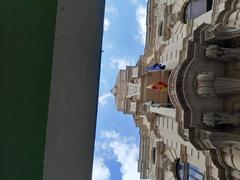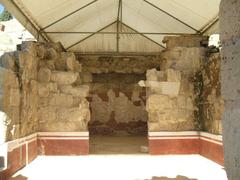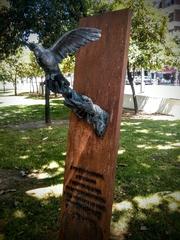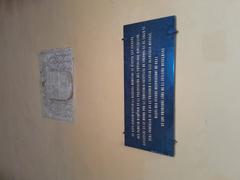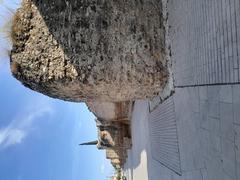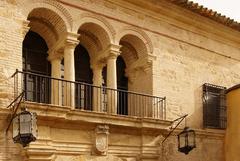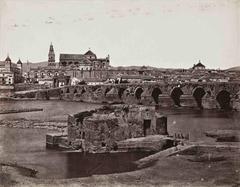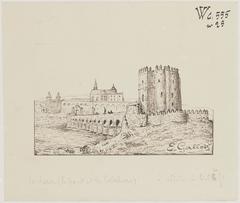Archivo Histórico Provincial de Córdoba: Visiting Hours, Tickets, and Historical Significance
Date: 14/06/2025
Introduction
The Archivo Histórico Provincial de Córdoba (AHPCO) stands as a central pillar of Córdoba’s cultural and historical landscape. Located in the heart of the city and housed within the impressive 16th-century Palacio de los Páez de Castillejo, the archive preserves over 1.5 million documents that trace the evolution of Córdoba and Andalusia from the medieval era to the present. This comprehensive guide details AHPCO’s historical importance, visitor information, collections, educational initiatives, and practical tips—serving researchers, tourists, and anyone eager to explore Córdoba’s rich heritage (Junta de Andalucía; Ministerio de Cultura y Deporte).
1. Historical and Architectural Background
Origins and Development
Founded in 1931, the AHPCO was established to centralize and safeguard Córdoba’s provincial records, especially following 19th-century disentailment reforms. The archive’s initial collections included notarial protocols, judicial records, and municipal documents reflecting centuries of Cordoban administration, society, and law. Today, its holdings extend across more than 10 kilometers of shelving, representing a vital resource for historical, genealogical, and legal research (Portal de Archivos de Andalucía).
The Palacio de los Páez de Castillejo
The AHPCO is housed in the Palacio de los Páez de Castillejo, one of Córdoba’s finest examples of Renaissance civil architecture. Built in the 16th century, the palace features harmonious courtyards, original frescoes, intricate azulejos, and a stately façade adorned with the Páez de Castillejo family crest. Sensitive restoration and adaptation have preserved these historical elements while integrating modern archival facilities and accessibility features. The building holds Spain’s Bien de Interés Cultural (BIC) designation, signifying its national heritage value (Patrimonio Cultural de Andalucía; Turismo de Córdoba).
2. Visitor Information: Location, Hours, and Admission
Location and Accessibility
- Address: Calle Pompeyos, 6, 14003 Córdoba, Spain (Google Maps)
- Access: Centrally located near major sites like the Mezquita-Catedral and Roman Bridge. Easily reached by public transport or on foot, with accessible entrances and facilities for visitors with reduced mobility (aseci.es).
Visiting Hours
- Archive: Monday to Saturday, 10:00–14:00
- Biblioteca Auxiliar: Monday to Friday, 8:30–14:30 (Junta de Andalucía)
Note: Check the official website for updates or special holiday hours.
Admission and Booking
- Admission: Free for all visitors.
- Group Visits: Groups (up to 15) must reserve in advance via phone (+34 957 00 22 48), email ([email protected]), or online. Guided tours are available and tailored for schools, universities, and cultural associations (Junta de Andalucía).
3. Collections Overview
Chronological and Thematic Scope
- Medieval Parchments: Dating from 1262, including royal charters and legal mandates.
- Notarial Protocols: Extensive holdings from 1440 onwards, invaluable for genealogical research, property records, and social history.
- Judicial and Administrative Records: Civil and criminal court files, Hacienda and Catastro documents, and records from the Junta de Andalucía.
- Private and Institutional Archives: Family papers, business records, and collections from organizations such as Frente de Juventudes and Sección Femenina.
- Photographs and Audiovisuals: Images and recordings (1949–1973) documenting urban change and social life.
- Maps and Architectural Plans: Cadastral and city maps, architectural drawings from the 16th–20th centuries.
Notable Features
- The oldest notarial protocol in Andalusia (1454)
- Documents relating to key historical events such as the French invasion and 19th-century social reforms
- Archives highlighting women’s and minority histories, including legal cases and prison files (Ministerio de Cultura y Deporte)
4. Research, Consultation, and Digital Resources
On-Site Services
- Reading Rooms: Well-equipped spaces for consulting original documents (reservation recommended).
- Library: Specialized collections on archival science and local history; part of the Red Idea documentation network.
- Assistance: Expert staff provide guidance for research and document requests.
Remote Access and Digitization
- Digital Catalogs: Many finding aids and selected documents are available online through the AHPCO website and @rchivAWeb.
- Document Reproduction: Copies can be requested for research purposes, subject to guidelines and fees.
5. Exhibitions, Cultural Activities, and Educational Programs
- Temporary and Permanent Exhibitions: Current features include “El Arte de Viajar o Viajar con Arte,” showcasing travel sketches by Urban Sketchers Córdoba (teleagenda.cordoba.es). Virtual exhibitions and a “document of the month” series are also available (Junta de Andalucía).
- Workshops and Outreach: Programs like “La mujer tutelada” use original documents to explore gender history and social change, engaging secondary students and the public (dialnet.unirioja.es; archiverosdeandalucia.org).
- Public Events: The archive participates in international initiatives such as Archives Week, fostering dialogue between the institution and the wider community.
6. Visitor Services and Guidelines
- Accessibility: Step-free access, accessible parking, and assistance for those with disabilities.
- Facilities: Information desk, reading rooms, and specialized library.
- Visitor Etiquette: No bags/food/drinks in reading rooms; pencils only for note-taking; photography only by permission; silence is required (Junta de Andalucía).
- Contact:
- Telephone: +34 957 00 22 48
- Email: [email protected]
- Facebook Page
7. Frequently Asked Questions
Q: What are the visiting hours?
A: Monday–Saturday, 10:00–14:00. Closed on Sundays and public holidays.
Q: Is admission free?
A: Yes, entry is free for all visitors.
Q: Are guided tours available?
A: Yes, by appointment for groups.
Q: Is the archive accessible for visitors with disabilities?
A: Yes, including accessible entrances and facilities.
Q: Can I take photographs inside?
A: Only with prior authorization.
Q: How do I consult archival materials?
A: Register at reception, reserve materials in advance, and follow staff guidance.
8. Enhance Your Visit
- Combine with Nearby Sites: The archive’s central location allows easy access to the Mezquita-Catedral, Roman Bridge, and other historic attractions.
- Stay Informed: Follow the archive’s official website and social media for updates on exhibitions and events.
- Use the Audiala App: For digital guides, event notifications, and related content.
9. Summary Table of Main Holdings
| Type of Collection | Chronological Range | Notable Examples |
|---|---|---|
| Notarial Protocols | 1440–20th century | Wills, property deeds, marriage contracts |
| Judicial Records | 16th–20th century | Civil/criminal cases, sentencing records |
| Administrative Records | 19th–20th century | Hacienda, Catastro, Junta de Andalucía |
| Medieval Parchments | 1262 onwards | Royal charters, legal documents |
| Photographs | 1949–1973 | Urban development, social events |
| Maps and Plans | 16th–20th century | Cadastral maps, city plans, architectural drawings |
| Private Collections | Various | Family papers, business records |
10. Plan Your Visit
The Archivo Histórico Provincial de Córdoba is a unique institution where history, education, and culture intersect. Its rich collections, dynamic programming, and accessible facilities make it an essential stop for anyone interested in the legacy of Córdoba and Andalusia. Whether you’re conducting academic research, tracing family history, or exploring Córdoba’s historical sites, the AHPCO offers a window into the past—and a vital resource for the present.
For the latest visiting hours, exhibition details, and booking options, consult the official website, and consider using the Audiala app to enhance your experience.
References
- Junta de Andalucía
- Ministerio de Cultura y Deporte
- Patrimonio Cultural de Andalucía
- Turismo de Córdoba
- Portal de Archivos de Andalucía
- Archiveros de Andalucía
- Dialnet Unirioja
- aseci.es
- teleagenda.cordoba.es
- Google Maps
